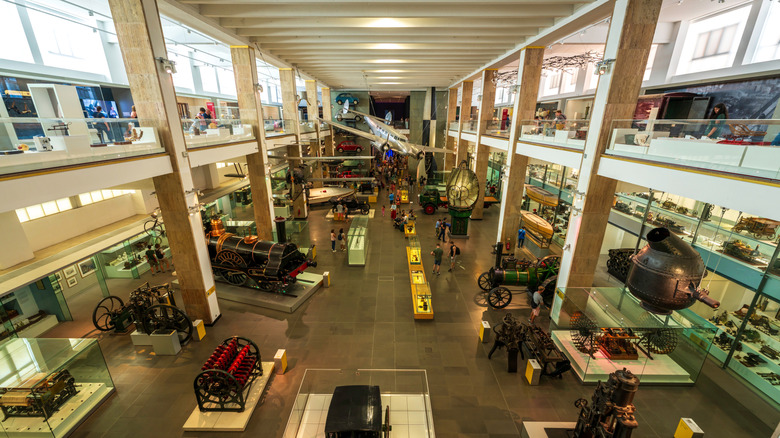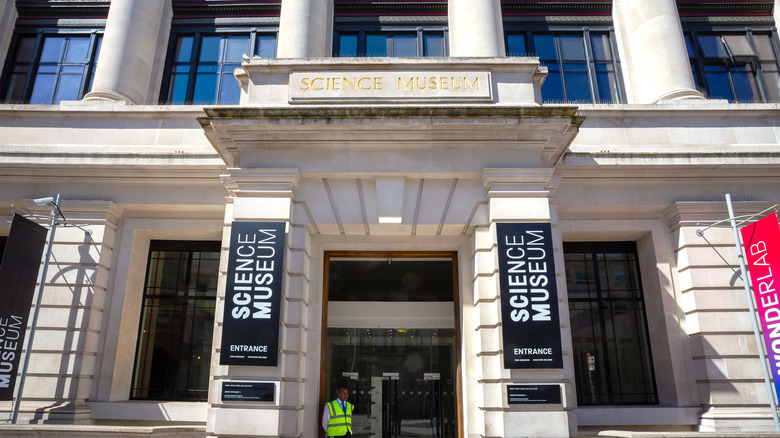Europe's Most Disappointing Museum Is A Popular Place In London With A Surprising Amount Of Negative Reviews
There's a particular kind of dismay that comes when you've waited in line for an hour, paid a stiff admission price, and shuffle through a widely known attraction only to wonder: Is this it? For example, people often say Stonehenge is one of the world's most disappointing attractions, where the experience is somewhat sterilized by the ropes keeping you away from the stones and the high expectations set by the cost. Among the world's most disappointing tourist attractions, museums can be especially underwhelming, whether because of their cramped space, information overload, or repetitive and boring content. With the sheer amount of incredible museums in Europe, there's no reason not to be selective and focus on the ones with better reputations. One European museum you might want to skip is London's Science Museum. It was deemed the most disappointing European museum in a survey by Radical Storage.
The survey looked at the 100 most-visited museums in the world and sifted through over 82,000 reviews, creating a score for each museum based on the ratio of positive to negative reviews. The Science Museum in London earned a score of 8.2 out of 100, with only one museum ranking worse than it — the National Air and Space Museum in Washington, D.C. Only around 40% of the reviews surveyed for the Science Museum were positive, and a high proportion of its negative reviews specifically mentioned disappointment. Reviewers have pointed out the museum's overcrowding, outdated or uninspiring exhibits, and exhibits cordoned off by paywalls. One Tripadvisor reviewer describes, "The museum was also very boring due to there being a lack of artifacts."
What a free ticket to the Science Museum actually gets you
If there's one redeeming quality of the Science Museum in London, it's that its main collection is free. For travelers on a budget, it could make a fine stop to escape harsh weather conditions — London is the best rainy day city in Europe, after all. But there are a few things you should expect (and not expect) with your free ticket. Free exhibitions include a history of flight, a collection of the world's oldest clocks, and the Apollo 10 command module (arguably the museum's biggest claim to fame). The museum's interactive Wonderlab, where children can get hands-on with science phenomena, requires a separate, paid ticket, as does the Power Up gallery, which includes a huge collection of retro video games you can play. You also won't get to see any of the museum's IMAX screenings without paying for a ticket.
Reviewers have frequently noted that the museum's focus is on history. "It consists mostly of historical exhibits, almost no hands-on," writes a Tripadvisor reviewer. That's not necessarily a bad thing if you're a traveler who enjoys historical context over high-tech displays. If you're interested in vintage machinery, the evolution of medicine, or the story of industrial innovation, you might find the exhibits worth your time.
Then, there's the potential snag of crowds. The Science Museum is one of the busiest; it had around 4.3 million visitors in 2024 and expects that number to keep going up. Even one Reddit user who enjoyed the museum notes its congestion: "To be fair, it was also the most crowded museum I've ever been to, at least on that particular day (a Saturday)." To avoid the biggest crowds, consider visiting on a weekday and steer clear of school holidays.

